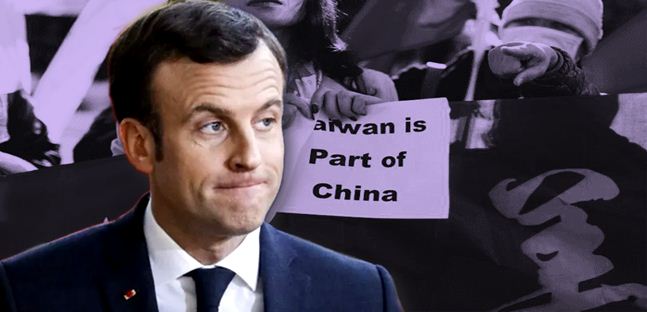Antagonizing Russia in midst of a geopolitical tussle with China wasn’t a good idea after all for the West. At present, the EU is getting to know the hard way as it wants to improve its relationship with Beijing while the latter wants the EU to endorse the one-China policy first.
EU plans a summit with China
The European Union has decided to hold a summit with China on April 1. European Commission Vice-President and EU trade chief Valdis Dombrovskis disclosed that the object of the upcoming summit is to diffuse tensions between Brussels and Beijing.
Dombrovskis said, “We know we are in a complicated phase of relations with China.” He referred to an investment agreement with Beijing that got stalled after Beijing imposed sanctions on some members of the Parliament, and escalating tensions between the two sides after Lithuania allowed Taiwan to open a de facto embassy in Vilnius.
The European Commission Vice-President said, “It is clear that some of those topics need to be addressed at the highest political level to see to what extent we can align and improve our cooperation.”
EU’s changing China policy
Not too long ago, the EU was ready to fight a trade war with China as Beijing was bullying Lithuania. But now it suddenly wants to talk things out with the paper Dragon and resume economic cooperation. Why is it changing the China policy all over again? It is certainly not because China all of a sudden started behaving like a civilized power.
Read more: France-led EU threatens to slap sanctions on China as Lithuania continues its onslaught
Well, Russia is at war with Ukraine. And the West cannot resist its urge of indulging in moral policing. It is sanctioning the Russian economy left, right, and center but this policy will ultimately harm the EU itself since Russia tops the oil and gas production, and the energy prices have already started surging high.
Brent crude approached $120 on Thursday as traders shunned Russian oil. JP Morgan says Brent crude could hit $185 a barrel by the end of the year if the Russian supply remains disrupted.
And natural gas is an even bigger headache for the EU. Europe depends for almost 40% of its gas consumption on Russia. Following the Russia-Ukraine war, gas prices in Europe doubled in just a week and reached $204.32 per MWh. On Thursday, prices were trading at an all-time high of $221 per MWh.
So, energy is becoming more expensive in Europe. Transportation costs and overall inflation are highly likely to go up too. Eurozone inflation has already hit a record high of 5.8%. Taking heed of the current situation, the EU won’t have the mettle to impose tough tariffs on Chinese goods.
China capitalizes on EU’s compulsions
China knows that the EU is in a tight spot and is trying to iron out bilateral differences. So, it is now making it a point to force the EU into following the one-China policy.
Consider what the Chinese State Councillor and Foreign Minister Wang Yi had to say last month. During a telephonic conversation with Josep Borrell, the EU’s high representative for foreign affairs and security policy, Yi said that the EU should ask Lithuania to return to the one-China principle.
Yi said that Lithuania’s Taiwan issue is not an issue between Europe and China, but only between China and Lithuania. He also said that the concern was political and had nothing to do with trade.
Read more: Taiwan nips off its last link with China as it finally bids adieu to ‘One-China’ policy
Through this, China is telling the EU that if you want cheap Chinese goods to bring down Eurozone inflation, you will have to strong-arm Lithuania and ask it to adopt the one-China policy.
The one-China policy was getting diluted amidst the China-Lithuania tussle over Taiwan. But Beijing saw just the right opportunity and jumped in to force the EU to accept it all over again.
